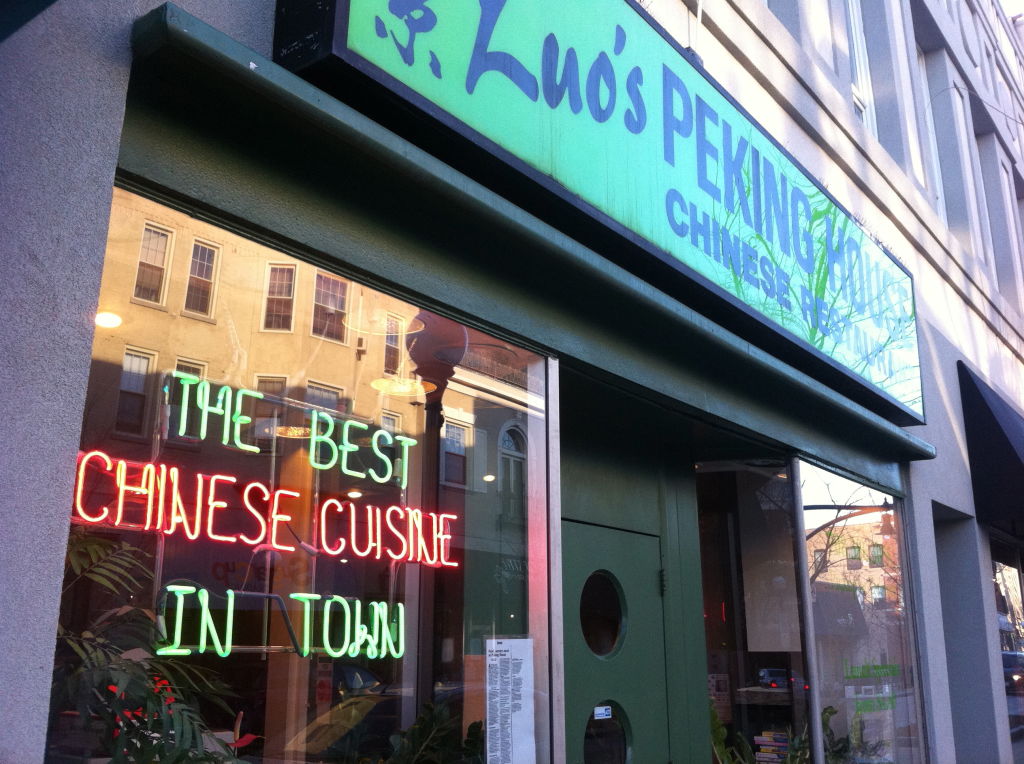
Boastful Claims Without Attribution Are Pretty Scary

Did you know that I have the Best Website in America? Really. I just decided that last night, and am considering putting up a big banner ad next to my name above. I’m not serious, of course. But if you think zombies and the walking dead are scary this time of year, try deciphering the validity of the growing number of boastful claims among restaurants.

In the sanguine, pre-Food Network days, restaurants would proudly hang a review from a local newspaper or national magazine up on their wall – sometimes blowing it up to a size that could be read from across the street – to let potential customers know about a dish or series of dishes that had become “signatures.” But somewhere along the way, tucked between a stolid Colman Andrews treatise, a colorful R.W. Apple sojourn and a caffeine-induced Guy Fieri shout-out, restaurateurs figured they could just invent their own “reviews” by manufacturing praise without accountability.

I noticed this a couple of years ago, in Madison, Wisconsin, of all places. I had met some friends from college for a reunion. We decided to have dinner at a legendary (by Madison standards) steak joint called Smoky’s Club. In college, lacking money and any sense of what good food should taste like, a lot of guys my age would make reservations at Smoky’s when they knew their parents were coming to visit. It was a chance to eat like a big shot and let dad pick up the tab. I had always loved the Midwestern relish tray, replete with celery, radishes, cottage cheese and garlic toast, and of course those steaks – served on sizzling platters, thick and juicy; I had always thought of them as a little bit of luxury amid the numbing weeks of ramen and turkey subs from Big Mike’s.
But at that reunion a few years ago, my carnivorous senses refined after years of professional eating, I noticed that the steaks didn’t taste anywhere near as good as I remembered them in college. In fact, they were pretty tough compared to the juicy beef I had become accustomed to eating in Chicago for 15 years. I asked our waiter what type of grade the beef was.
“Angus,” he replied, curtly. “The best type of beef possible.”

My friends looked at me, like I was picking a fight I had no business getting involved in. Knowing that Angus was more a marketing term, and therefore realizing the beef was, in fact, graded Choice, I shot back:
“But isn’t Prime the highest grade of beef?”
“Well…” he stammered, after what seemed like a minute of silence, “it’s the best beef possible for us to get here.”
A round of “ooohhhs” swelled up from my friends. They knew I had proved the guy wrong, but more than that, I was now annoyed that this place, allegedly “voted #1 for steaks” as the sign proudly claimed inside, up on the wall, was pure B.S. When I asked the manager on the way out who had bestowed this #1 ranking on them, and just as important, when – she couldn’t really answer. That’s when I started noticing this practice of self-proclamation in restaurants of all stripes. “World’s Best Burgers,” “Best _____ in the city!” and other such claims have now become commonplace, and few, if any of them, back it up with the source of the praise.

So here’s a thought: next time you see one of these signs, ask the management who declared it and when. Challenge them a little and see if they squirm. If Chicago Magazine said so in 1995, that’s one thing; if the owner’s mom did, that’s quite another.


